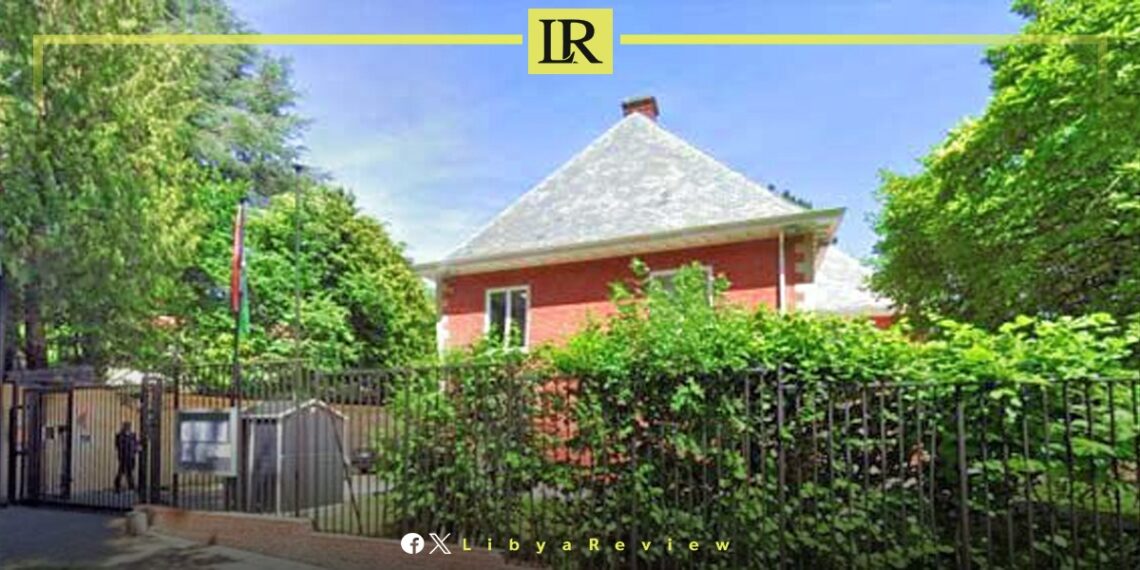The Libyan Embassy in Brussels has not paid its local staff for over seven months, a situation reported by ” Belgian newspaper “Le Soir” and linked to a financial scandal involving high-ranking officials within the embassy.
The crisis began last September when allegations of corruption led to a shakeup at the diplomatic mission, affecting the livelihoods of its six Belgian-contracted employees.
The scandal unfolded with the removal of the Libyan Ambassador to Belgium, Amal Al-Jarary, following an audio leak that suggested financial impropriety and misuse of embassy funds. The Libyan Public Prosecutor’s Office responded to the outcry by detaining Al-Jarary on October 3rd for charges related to illicit financial gain and embezzlement.
At the heart of the controversy was a leaked conversation in which Al-Jarary appeared to request a bogus invoice for a non-existent cancer patient, intending to divert embassy funds to her accounts. This audacious plan involved falsifying medical expenses to be approved by the Libyan Minister of Health.
In the wake of these allegations, the Libyan Administrative Control Authority also provisionally suspended Al-Jarary in August due to her alleged involvement in multiple infractions.
This scandal highlights deep-rooted issues of corruption within Libya’s diplomatic establishment and underscores the need for transparency and accountability. Moreover, it draws attention to the dire situation of embassy staff in Brussels, who have been left financially stranded by the ongoing investigation and subsequent administrative upheaval.
Libya has been in chaos since a NATO-backed uprising toppled longtime leader Muammar Gaddafi in 2011. The county has for years been split between rival administrations.
Libya’s economy, heavily reliant on oil, has suffered due to the ongoing conflict. The instability has led to fluctuations in oil production and prices, impacting the global oil market and Libya’s economy.


